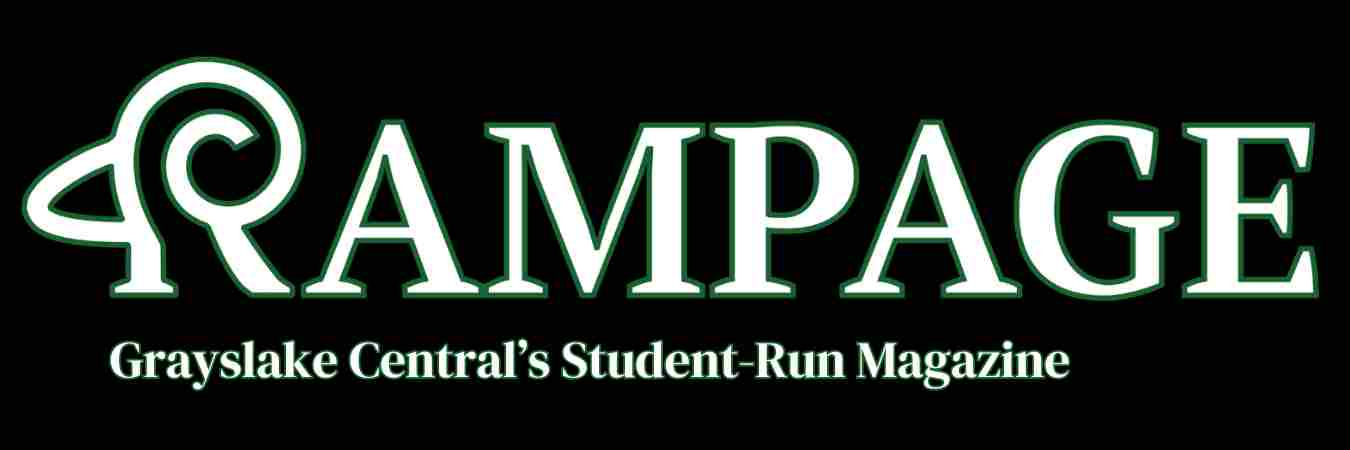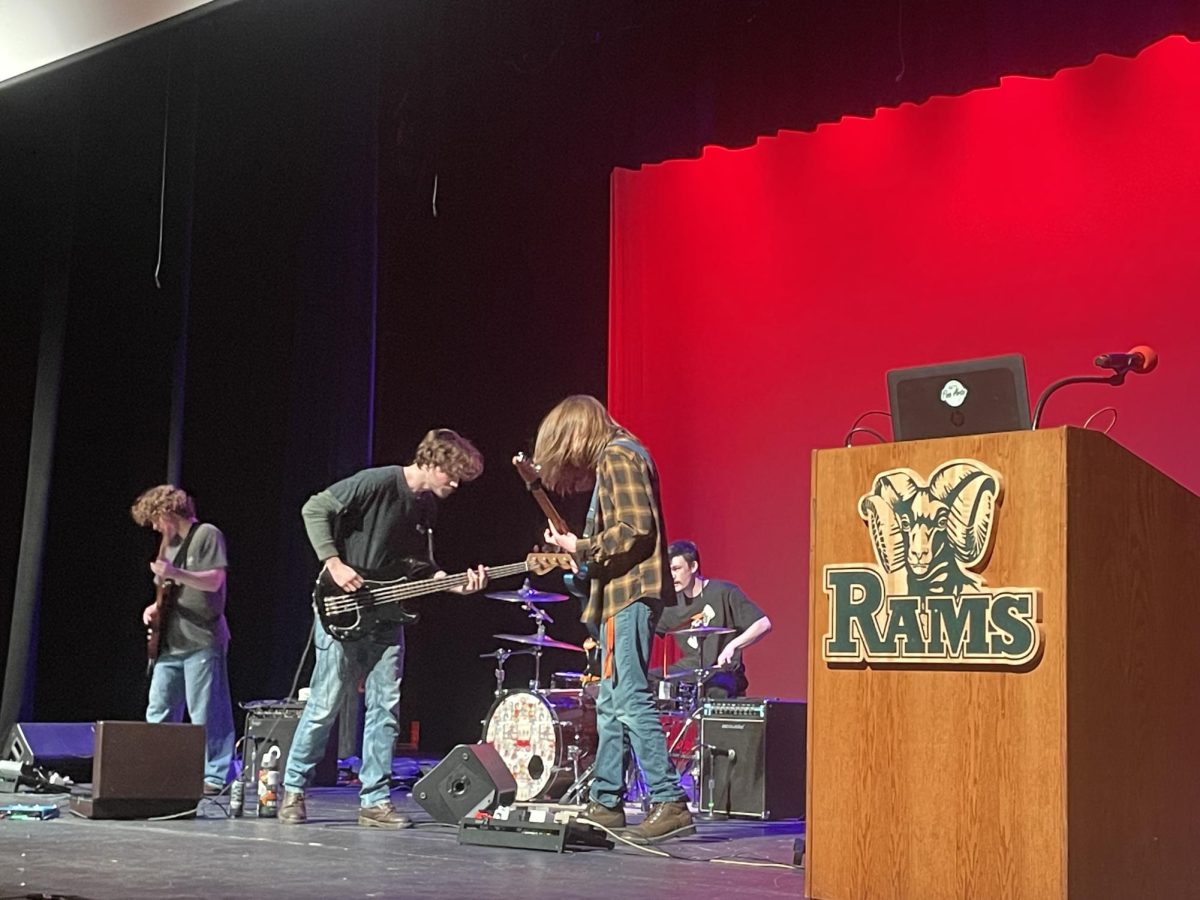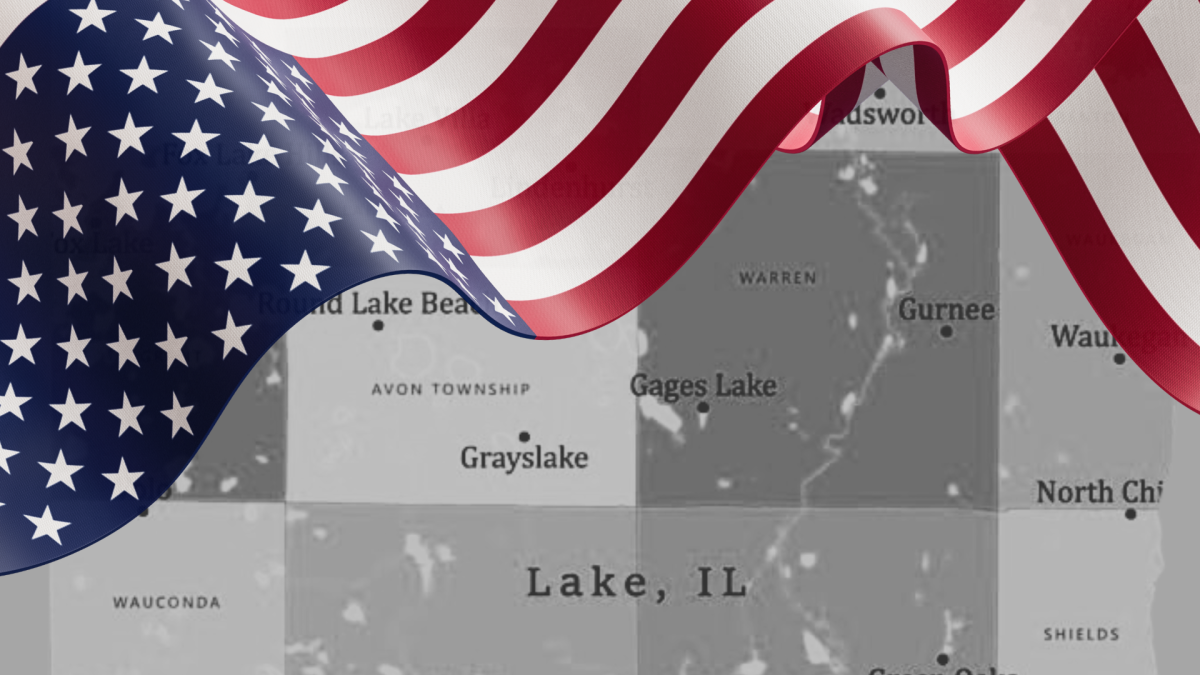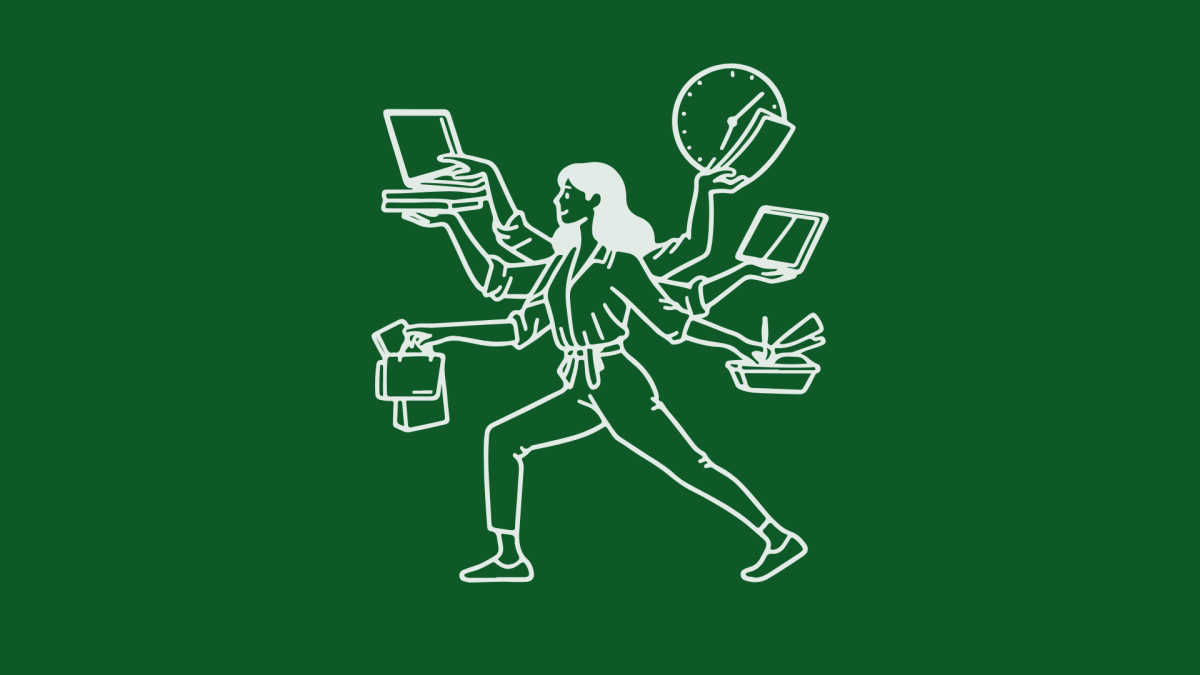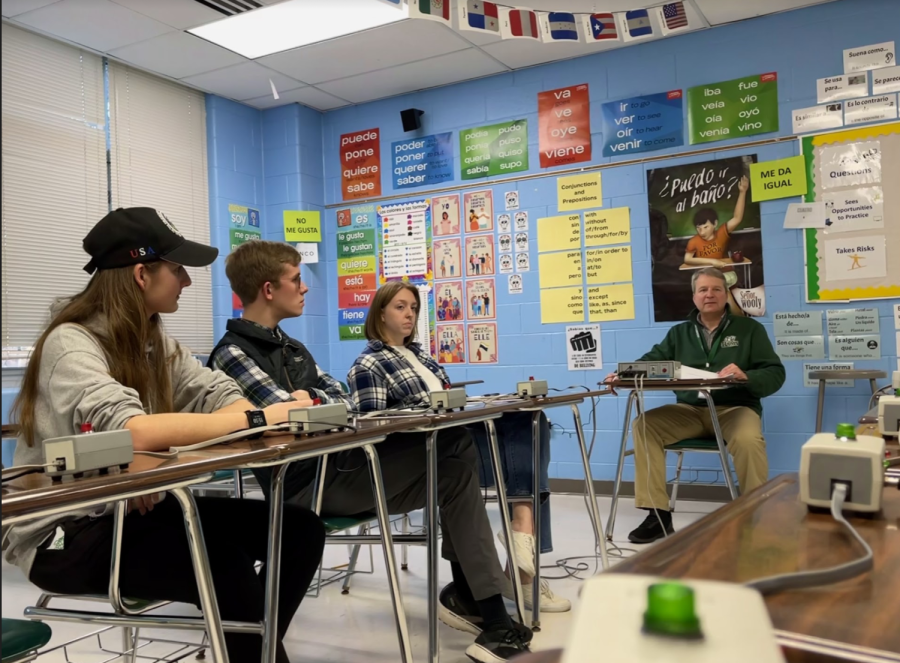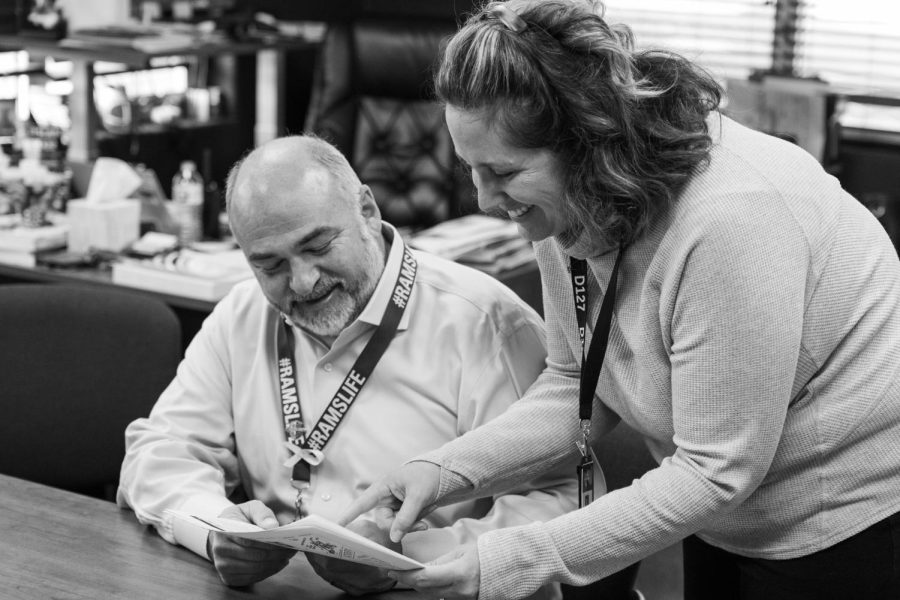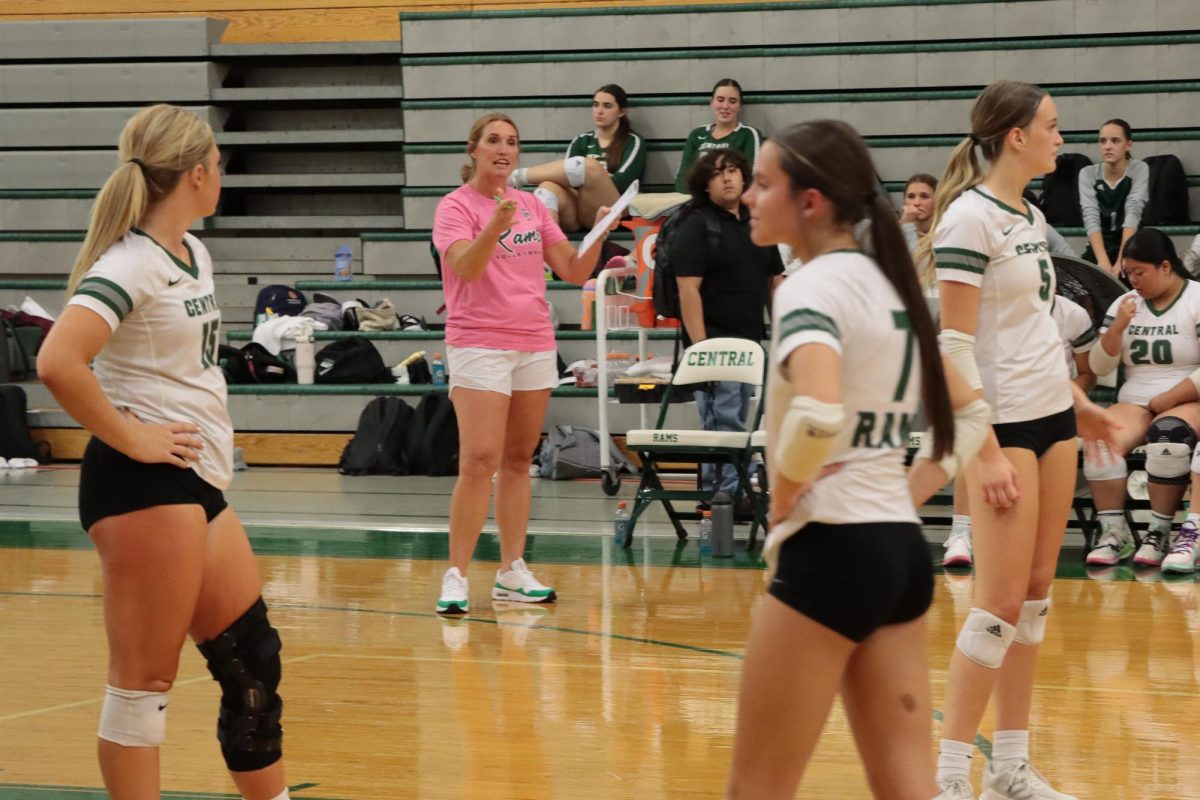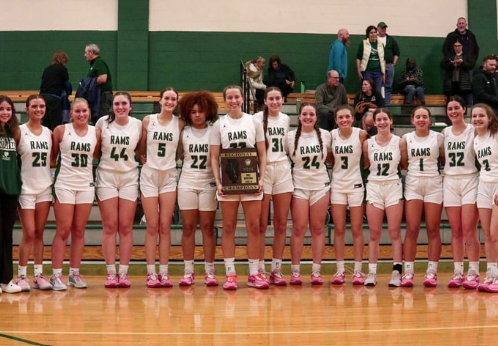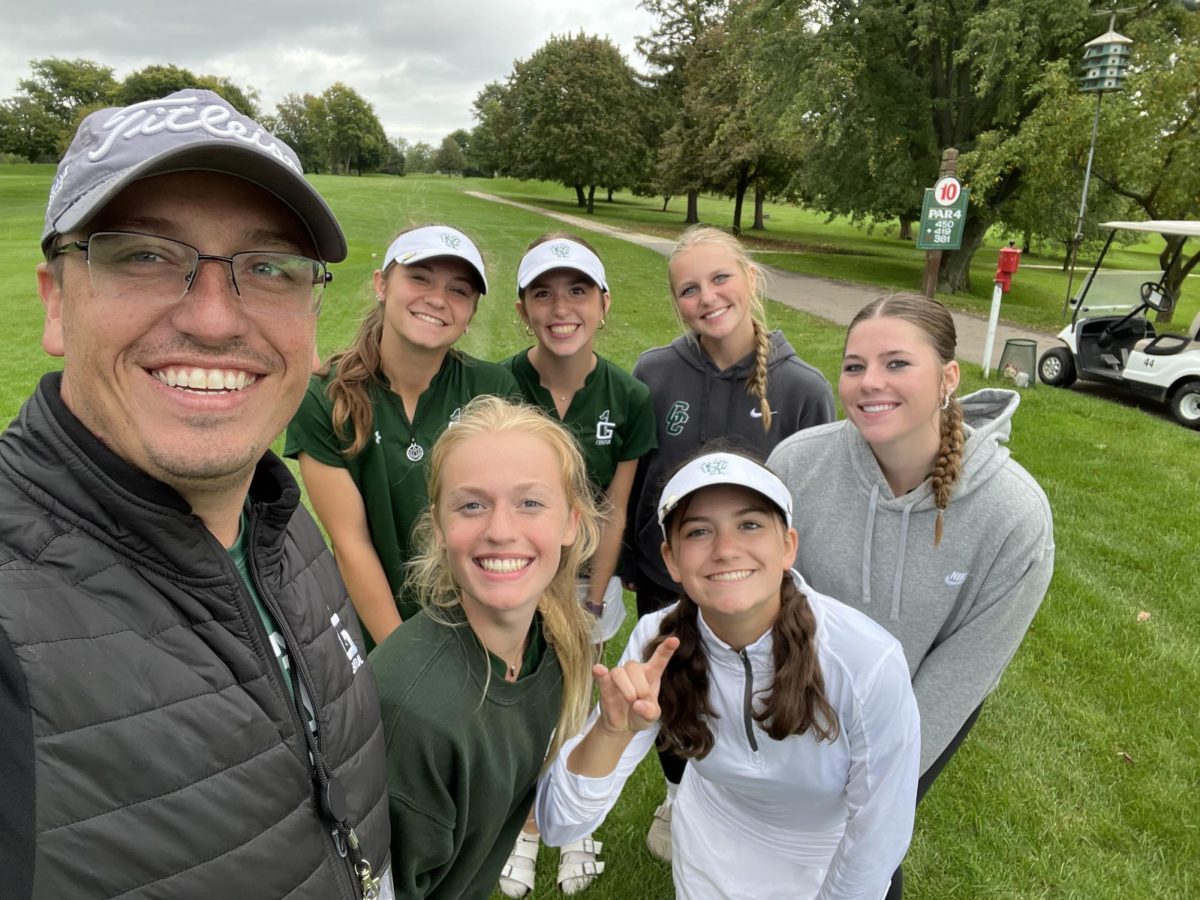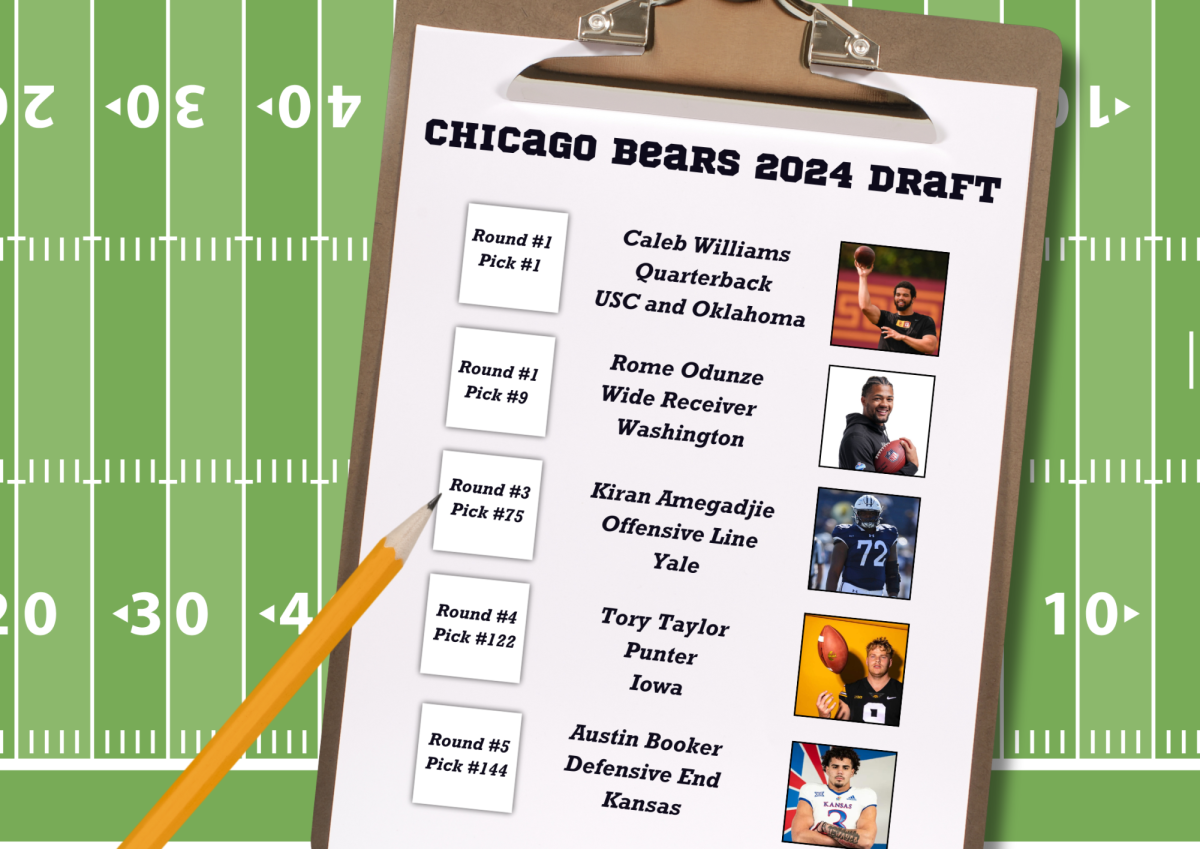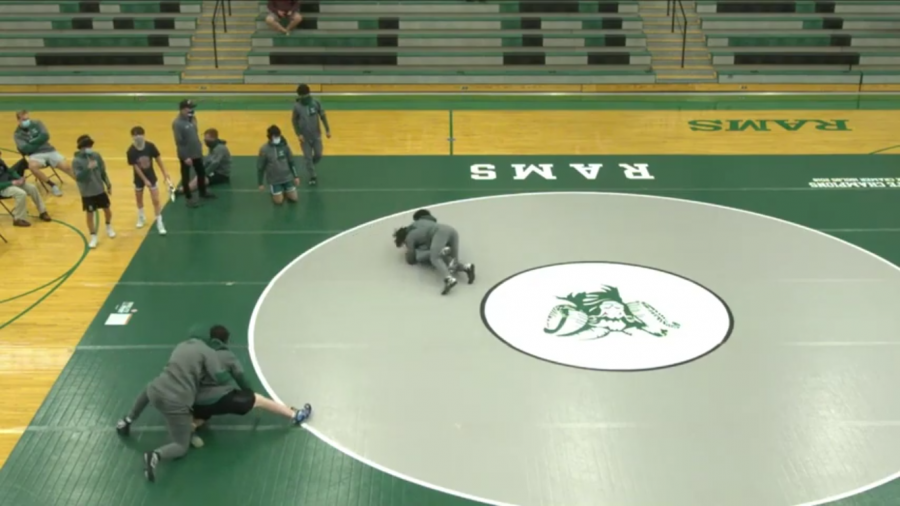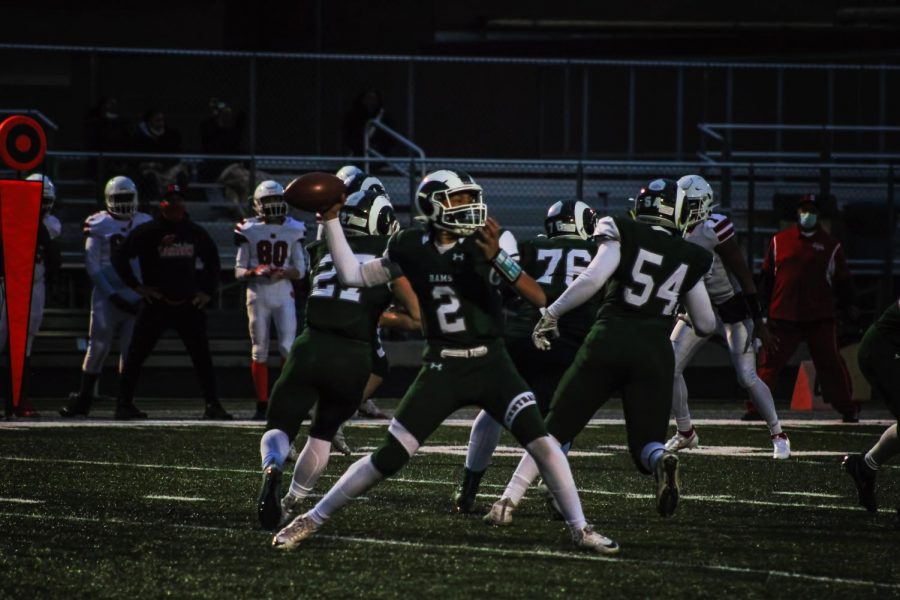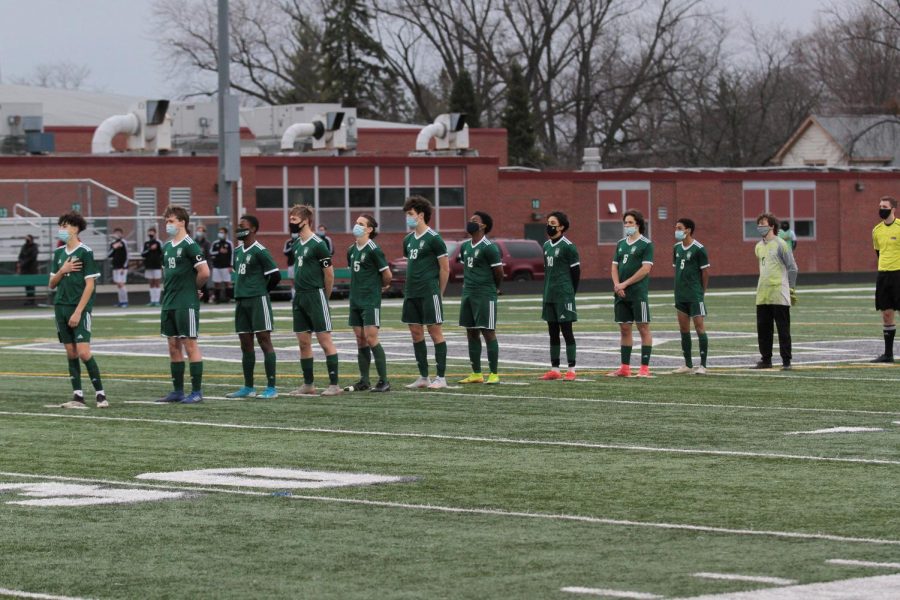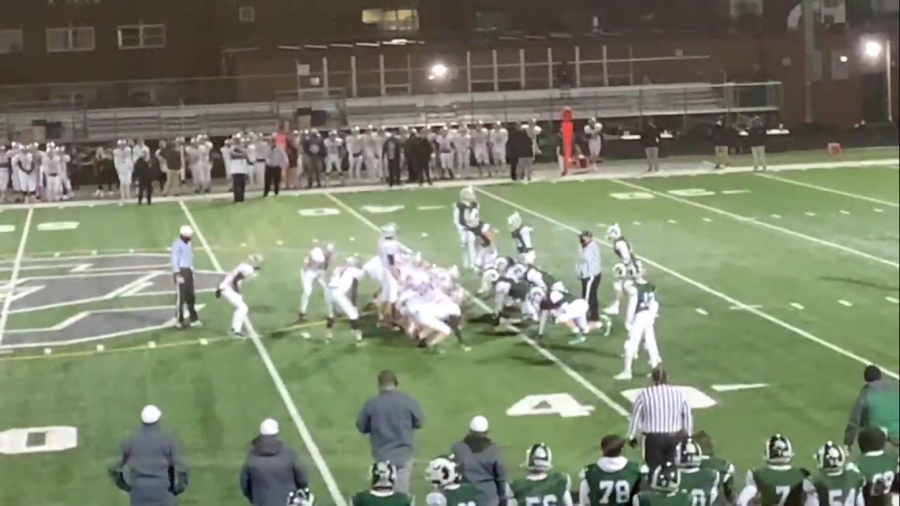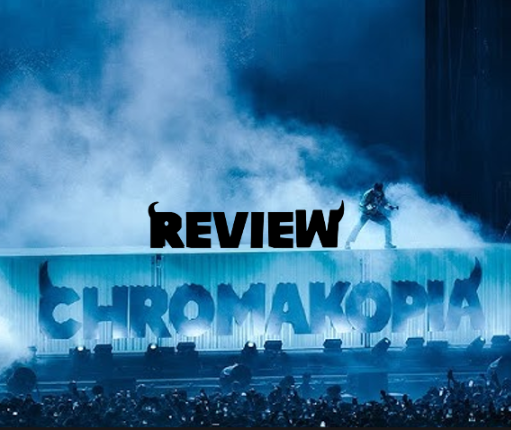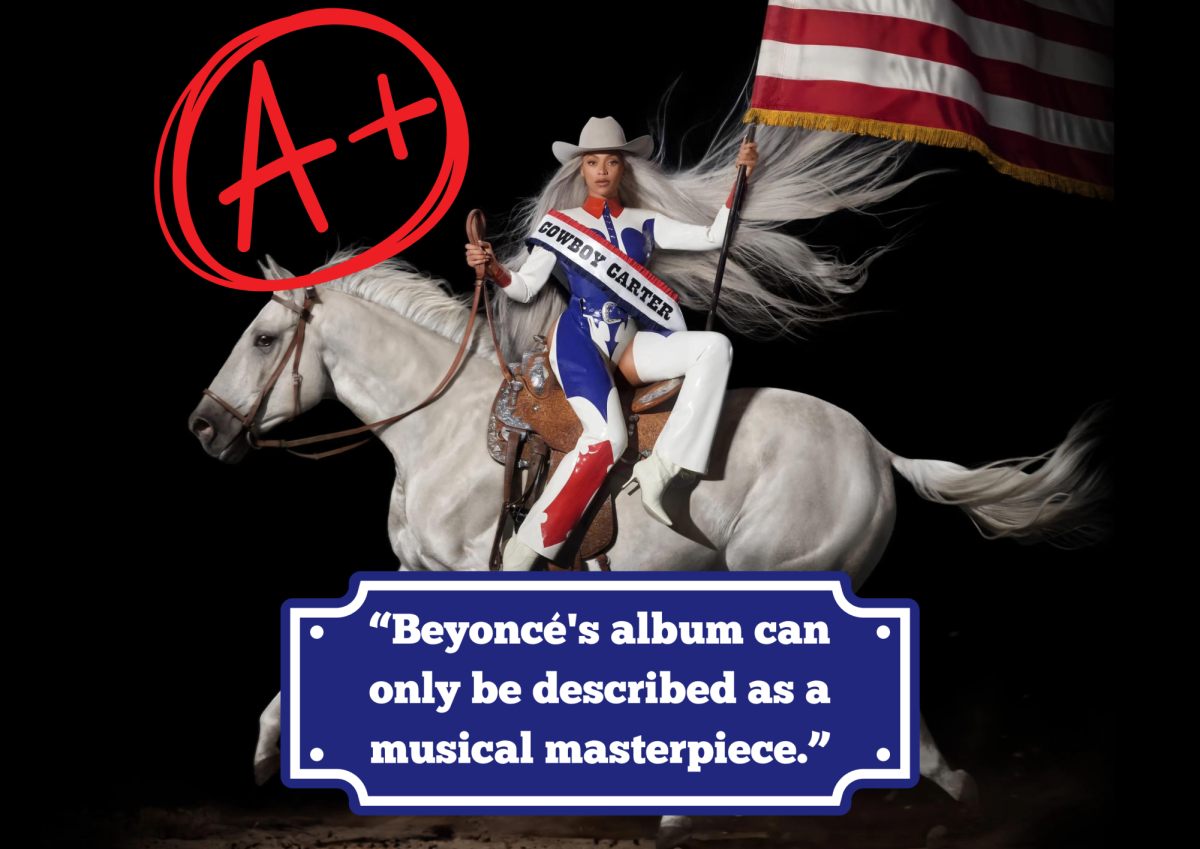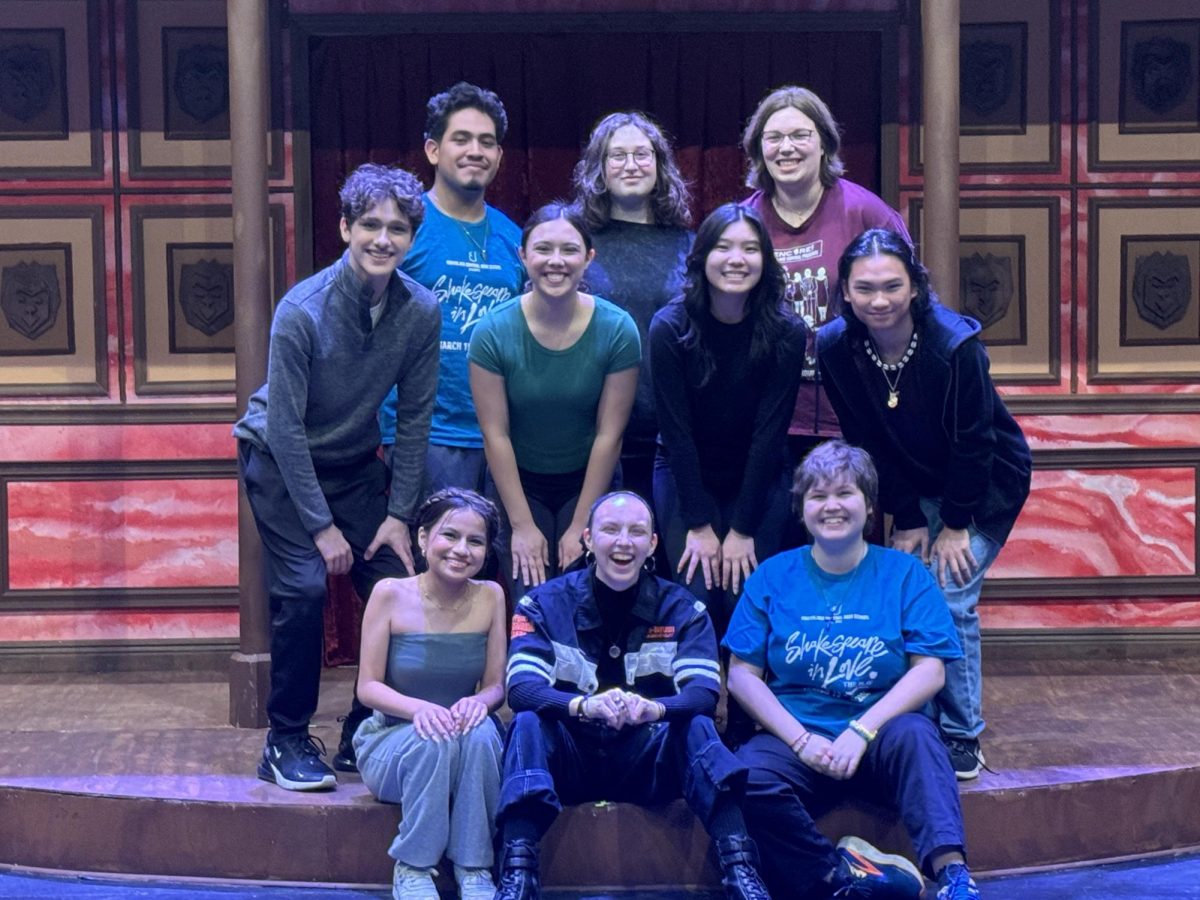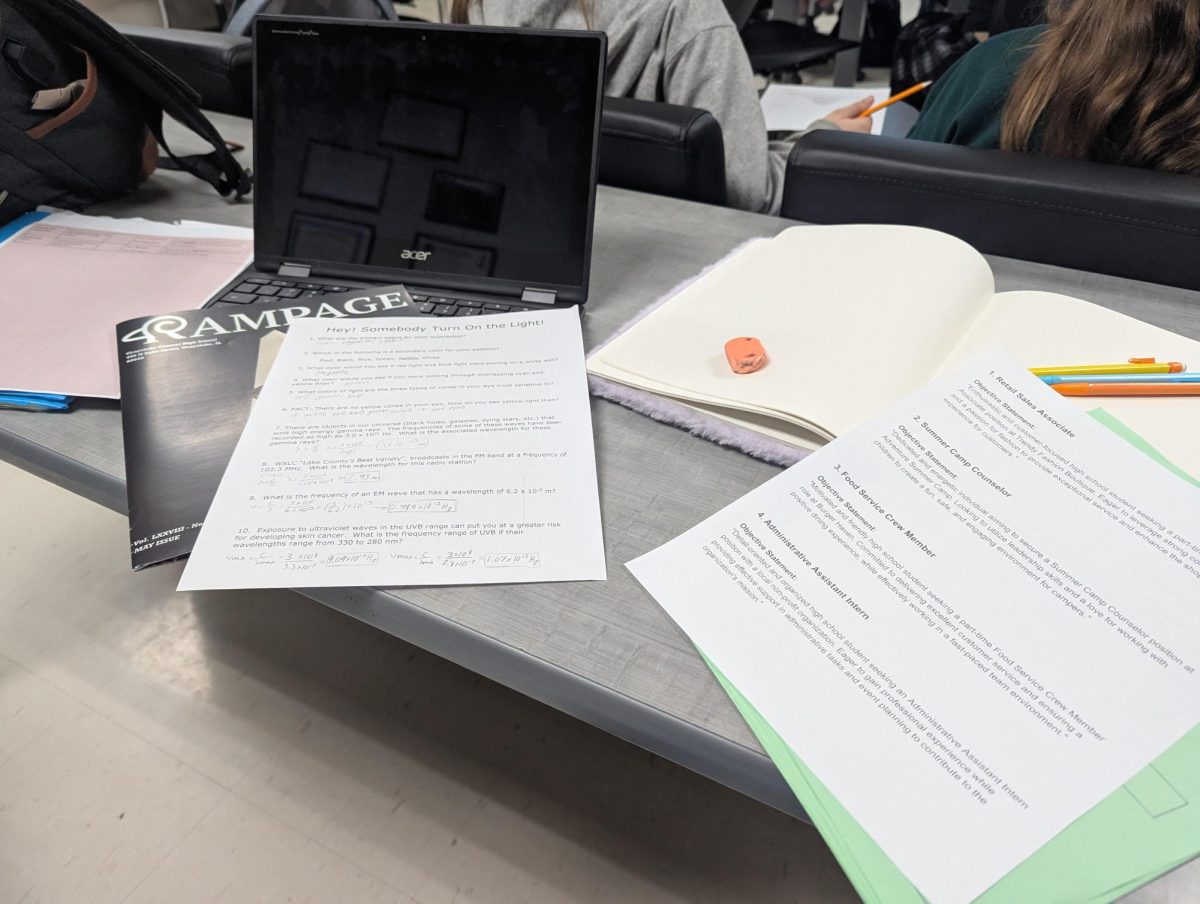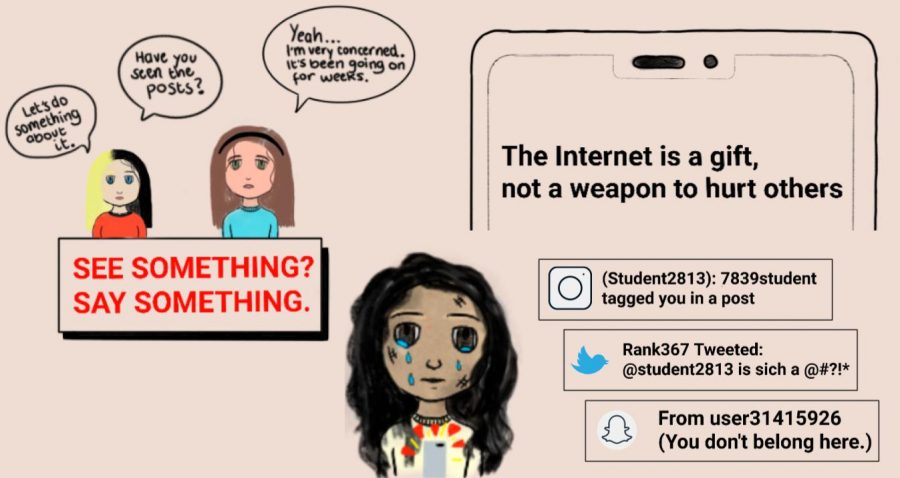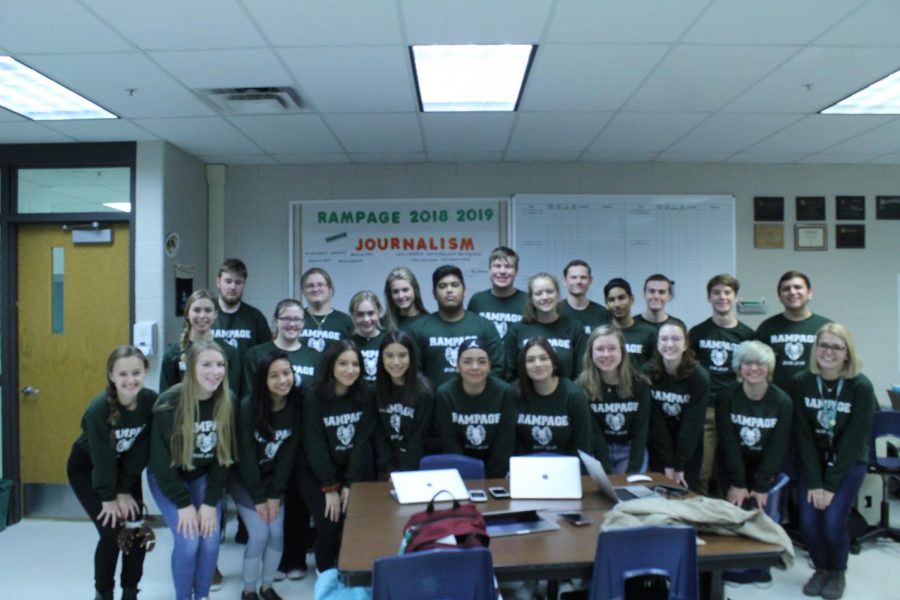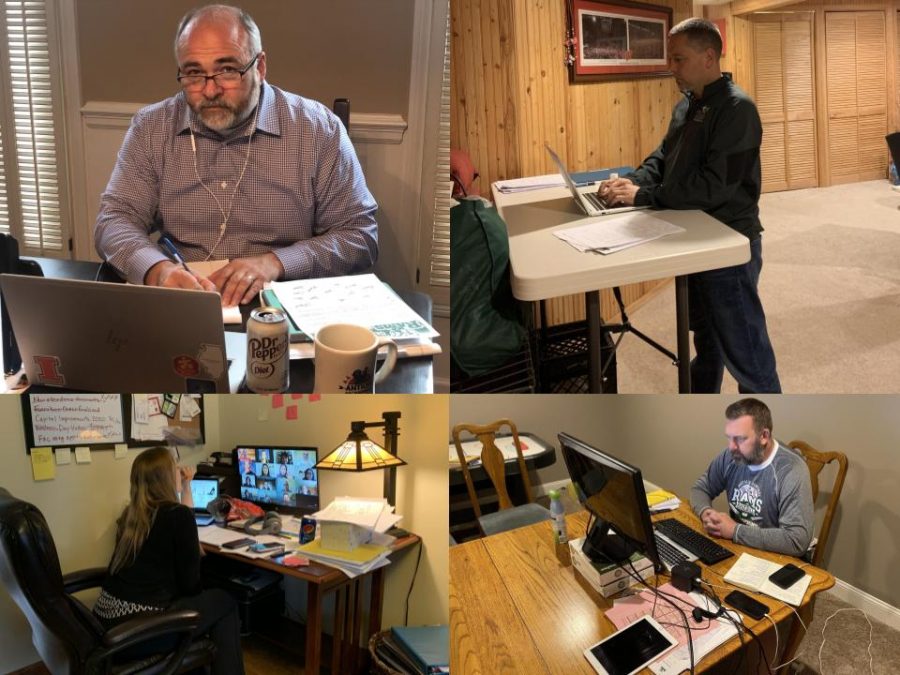Administration combats eLearning challenges
The COVID-19 pandemic has made the administrative board’s jobs a lot harder.
Photos provided by the administrative board members
The administrative board- Principal Dan Landry, Associate Principal for Curriculum and Instruction Barbara Georges, Associate Principal for Student Services Mike Przybylski, and Athletic Director Brian Moe- are each pictured at their home work spaces.
April 30, 2020
Every student at GCHS has been affected by the COVID-19 pandemic due to the resulting quarantine. What many people may not consider is how much the quarantine affects the jobs of the school administrators. They currently have to run a school that is not open, and make big decisions in a climate where everything seems to change every day.
The main change that the administrators are experiencing is the same as our biggest change–they now have to do everything digitally. While there are pros and cons for eLearning for everybody involved, for the administrators, a very unique problem is presented. The members of the administrative board often take the job because they enjoy seeing and helping the students, which they are no longer able to do as much or in person.
“I don’t see students much anymore, which is very sad. And it’s a lot harder to connect with and communicate with people,” said Associate Principal for Curriculum and Instruction Barbara Georges. “I just really miss the face to face interactions and being able to walk the halls and see students.”
This does not, however, take away from the amount of work that the administrators have. If anything, it only adds to the workload.
“I have been logging into my computer starting at 7 a.m., and I’m logging off my computer at 7 or 8 at night,” said Associate Principal for Student Services Mike Przybylski. “[I have] a lot of Zoom calls, a lot of texting on my phone, tons of emails going back and forth.”
With the structure of school days being so different at the moment, the administrators need to find some innovative new solutions to help themselves communicate with students. For example, Georges said she has started using Google HyperDocs and making video messages. More notably, though, is how much they need to communicate with each other.
“We have what we call administrative council meetings three days a week,” said Przybylski. “With everything changing on a constant day-by-day basis, it’s just constant communication, making sure nothing slips through the cracks”.
In these meetings, the administrators make some of the biggest decisions that nobody would ever expect them to have to make. This includes the recent decision to cancel this year’s final exams.
“I don’t think it would be appropriate for us as a school to mandate final exams in the traditional setting and in the traditional way that they would be done,” said Principal Dan Landry. “Because not everybody has the same access to the internet. Not everybody has the same access to the learning that has been going on.”
When boiled down to the essence, the administrators are all about helping out and providing for the students. This is best shown by their current efforts to salute the seniors, who will not be able to come back to the school, in any way possible, such as Athletic Director Brian Moe putting on the stadium lights for the #Bethelight campaign.
“Even though I’m curriculum and instruction and my focus is supposed to be everything about what you’re learning and how you’re being assessed, I have to make decisions on everyone’s physical well being and everyone’s emotional state,” said Georges. “Because if those two things aren’t taken care of, any academic decision I make will be meaningless.”
